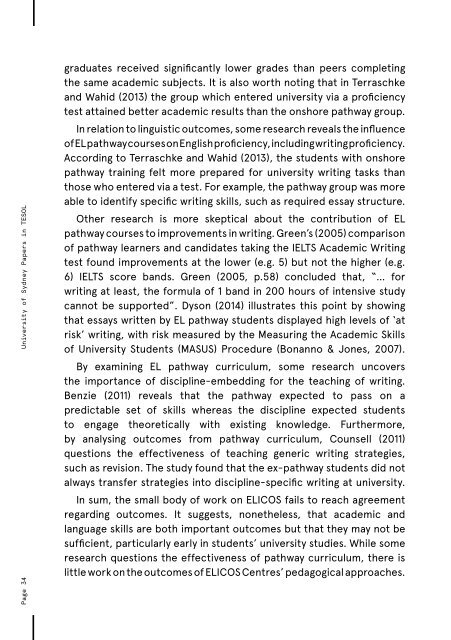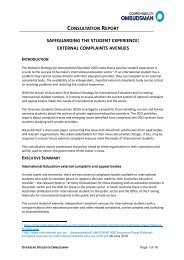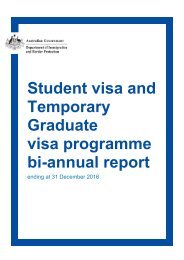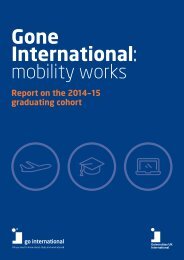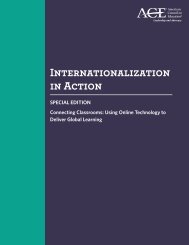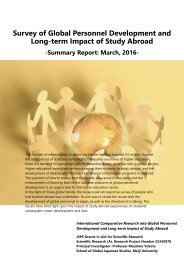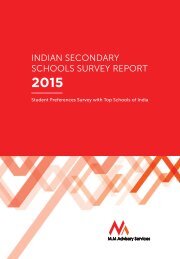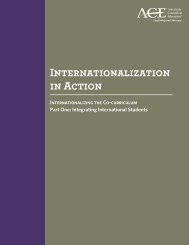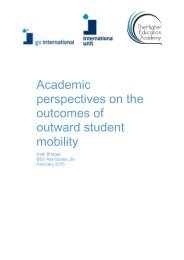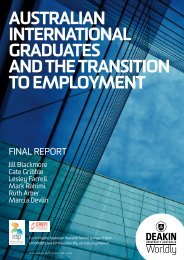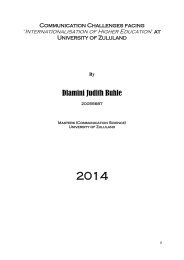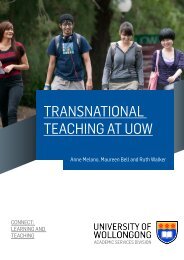You also want an ePaper? Increase the reach of your titles
YUMPU automatically turns print PDFs into web optimized ePapers that Google loves.
Page 34 University of Sydney Papers in TESOL<br />
graduates received significantly lower grades than peers completing<br />
the same academic subjects. It is also worth noting that in Terraschke<br />
and Wahid (2013) the group which entered university via a proficiency<br />
test attained better academic results than the onshore pathway group.<br />
In relation to linguistic outcomes, some research reveals the influence<br />
of EL pathway courses on English proficiency, including writing proficiency.<br />
According to Terraschke and Wahid (2013), the students with onshore<br />
pathway training felt more prepared for university writing tasks than<br />
those who entered via a test. For example, the pathway group was more<br />
able to identify specific writing skills, such as required essay structure.<br />
Other research is more skeptical about the contribution of EL<br />
pathway courses to improvements in writing. Green’s (2005) comparison<br />
of pathway learners and candidates taking the IELTS Academic Writing<br />
test found improvements at the lower (e.g. 5) but not the higher (e.g.<br />
6) IELTS score bands. Green (2005, p.58) concluded that, “… for<br />
writing at least, the formula of 1 band in 200 hours of intensive study<br />
cannot be supported”. Dyson (2014) illustrates this point by showing<br />
that essays written by EL pathway students displayed high levels of ‘at<br />
risk’ writing, with risk measured by the Measuring the Academic Skills<br />
of University Students (MASUS) Procedure (Bonanno & Jones, 2007).<br />
By examining EL pathway curriculum, some research uncovers<br />
the importance of discipline-embedding for the teaching of writing.<br />
Benzie (2011) reveals that the pathway expected to pass on a<br />
predictable set of skills whereas the discipline expected students<br />
to engage theoretically with existing knowledge. Furthermore,<br />
by analysing outcomes from pathway curriculum, Counsell (2011)<br />
questions the effectiveness of teaching generic writing strategies,<br />
such as revision. The study found that the ex-pathway students did not<br />
always transfer strategies into discipline-specific writing at university.<br />
In sum, the small body of work on ELICOS fails to reach agreement<br />
regarding outcomes. It suggests, nonetheless, that academic and<br />
language skills are both important outcomes but that they may not be<br />
sufficient, particularly early in students’ university studies. While some<br />
research questions the effectiveness of pathway curriculum, there is<br />
little work on the outcomes of ELICOS Centres’ pedagogical approaches.


